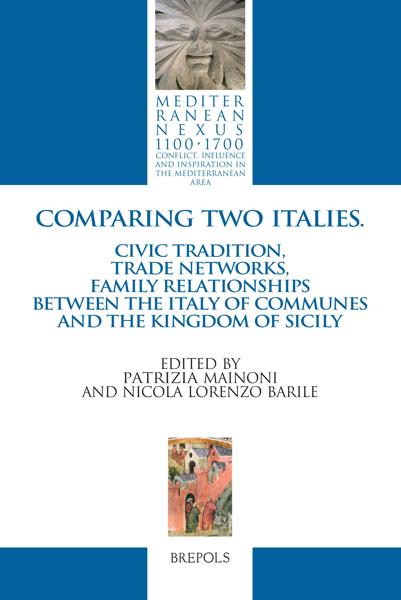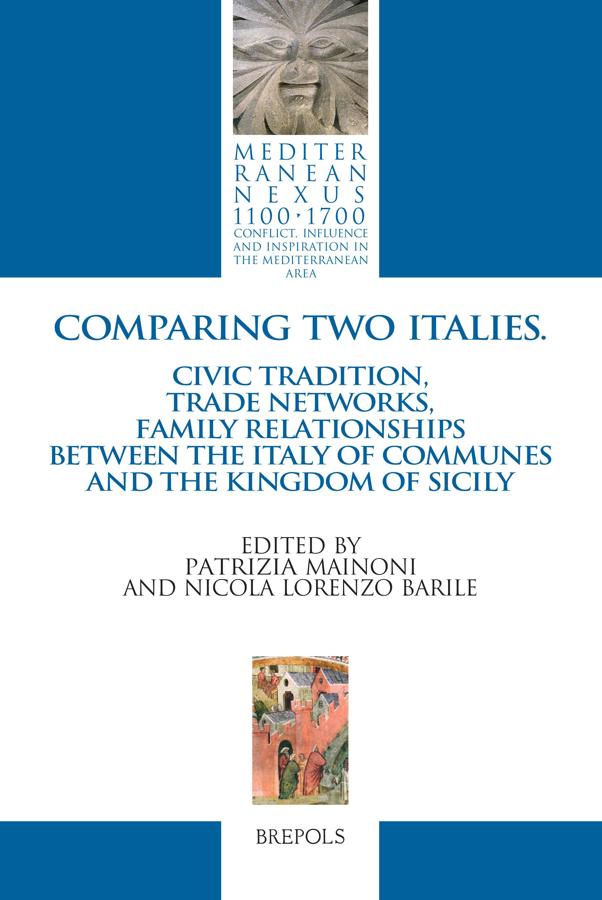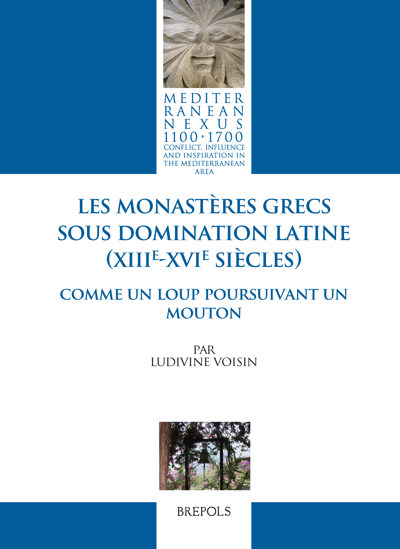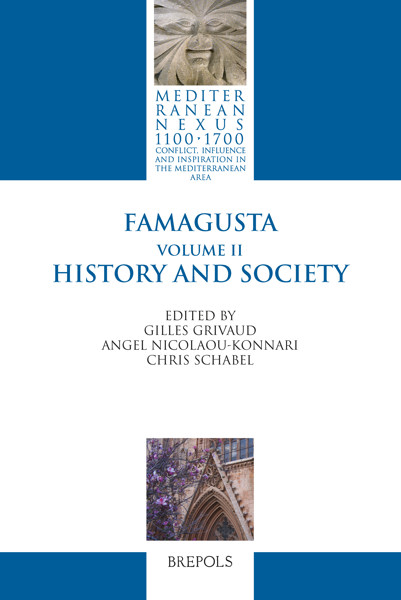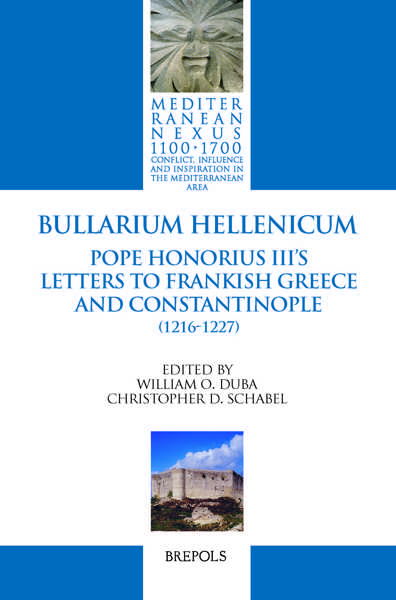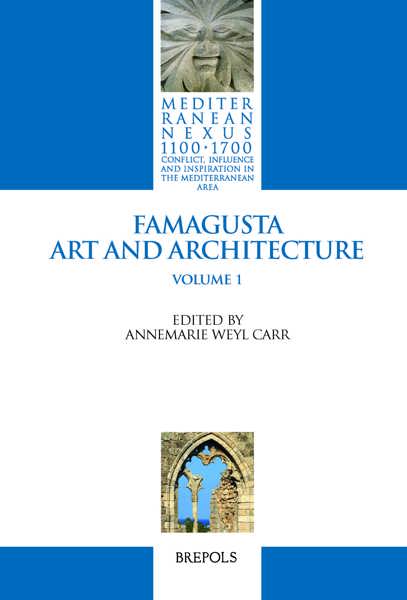
Comparing Two Italies
Civic Tradition, Trade Networks, Family Relationships between the Italy of Communes and the Kingdom of Sicily
Patrizia Mainoni, Nicola Lorenzo Barile (eds)
- Pages: 260 p.
- Size:156 x 234 mm
- Illustrations:3 b/w, 1 tables b/w.
- Language(s):English, French
- Publication Year:2020
- € 90,00 EXCL. VAT RETAIL PRICE
- ISBN: 978-2-503-56976-5
- Hardback
- Available
- € 90,00 EXCL. VAT RETAIL PRICE
- ISBN: 978-2-503-56977-2
- E-book
- Available
A fresh look at the complex historical problem of the 'Two Italies'
“Für die kritische Auseinandersetzung mit den „zwei Italien“ ist der vorliegende Band zweifellos anregend.” (Markus Krumm, in H-Soz-Kult 2.3.2022)
“These excellent chapters show that it is not just a question of “comparing two Italies,” but of connecting them.” (David Abulafia, in Renaissance Quarterly 75/2, 2022, p. 654)
“Con queste considerazioni si chiude un volume non solo ricco di spunti di riflessione, ma anche in grado di mostrare un utile maniera di valorizzazione delle occasioni celebrative. Il libro dal quale sono partiti i vari studiosi che hanno scritto nel presente volume è uno di quelli che si può dire “hanno fatto la storia”, perché la sua influenza nella storiografia posteriore è stata grandissima, feconda di costruttivi dibattiti, soprattutto quando le tesi argomentative di Abulafia non venivano accettate acriticamente ma venivano vagliate alla prova dei fatti. Da qui nasce il valore esemplare della presente miscellanea, che al di là delle notevoli ac[1]quisizioni propone una maniera di riconsiderare i grandi classici della storiografia.” (Gian Paolo G. Scharf, in Studi Medievali, LXIV - Fasc. II, 2023, p. 957)
“Da qui nasce il valore esemplare della presente miscellanea, che al di là delle notevoli acquisizioni propone una maniera di riconsiderare i grandi classici della storiografia.” (Gian Paolo G. Scharf, in Società & Storia, 177, 2022, p. 616)
The title of this volume recalls the famous 1977 book by David Abulafia, The Two Italies, about the origins of the so-called 'unequal exchange' and 'dual economy' between Northern and Southern Italy. These are supposed to have provided the ground for the so-called ‘Southern question’ (‘questione meridionale’), one of the foremost topics in the whole of Italian history. However, trade is not the only relevant theme in a comparison between the Italy of Communes and the Kingdom of Sicily. This collection of essays points to different interpretative paths, which concern not only trade networks, but also less well-known aspects of the interrelation, such as the rise of civic tradition, the spread of Mendicant Orders, and the circulation of wealth through family relationships, women, marriage and patrimonial assets.
About the 'Two Italies' (Patrizia Mainoni)
Between Legal Tradition and Political Practice: Decisions by Majority Vote in North-Central Italian Communes, and a Few Thoughts for Comparison with the 'Universitates' of Peninsular Southern Italy (Twelfth-Thirteenth Centuries) (Gianmarco De Angelis)
Transformations sociales et institutionnelles dans une ville pontificale du Mezzogiorno: les statuts de Bénévent de 1203 (Giovanni Araldi)
The Franciscan Order between Two Italies (Maria Teresa Dolso)
Rethinking 'The Two Italies': Circulation of Goods and Merchants between Venice and the 'Regno' in the Late Middle Ages (Nicola Lorenzo Barile)
Regional Trade and Economic Agents in the Kingdom of Naples (Fifteenth Century) (Eleni Sakellariou)
Women, Families and Wealth in Twelfth- and Thirteenth-Century Liguria: Past Approaches and New Perspectives (Paola Guglielmotti)
Familia id est substantia? Women and Statutes in the Consilia of Baldus de Ubaldis (Alessandra Bassani)
Deux, trois, cent Italies: réflexions pour une géographie historique des systèmes dotaux (Isabelle Chabot)
Conclusion: Many Centuries, Many Italies (Paolo Grillo)
Index of Names and Places
